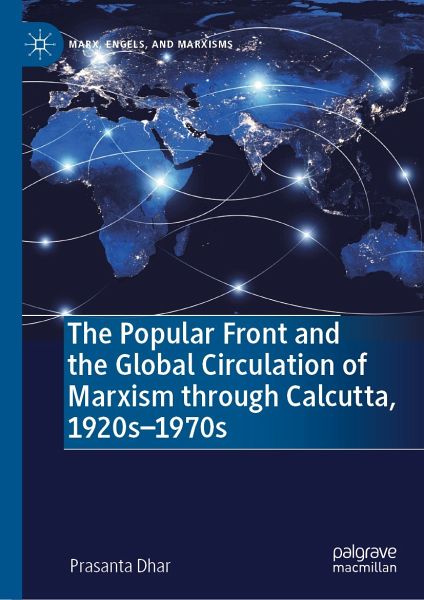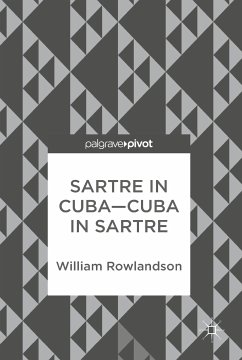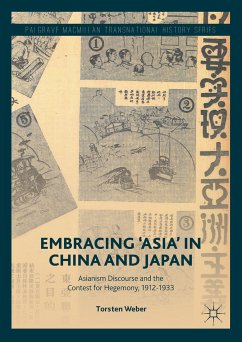
The Popular Front and the Global Circulation of Marxism through Calcutta, 1920s-1970s (eBook, PDF)
Versandkostenfrei!
Sofort per Download lieferbar
96,95 €
inkl. MwSt.
Weitere Ausgaben:

PAYBACK Punkte
48 °P sammeln!
This book examines the global circulation of Marxism seen from one of its most highly charged sites: Calcutta in India. Building on but also revising existing approaches to global intellectual history, the book presents the circulation of Marxism through Calcutta as a historically-sited problem of mass mediation. Using tools from media studies, the book explores the way that Marxism was presented to the public, the technologies used, and the meanings of Marxism in twentieth-century Calcutta. Demonstrating how the Popular Front was split between the so-called 'people's group' and those whom wer...
This book examines the global circulation of Marxism seen from one of its most highly charged sites: Calcutta in India. Building on but also revising existing approaches to global intellectual history, the book presents the circulation of Marxism through Calcutta as a historically-sited problem of mass mediation. Using tools from media studies, the book explores the way that Marxism was presented to the public, the technologies used, and the meanings of Marxism in twentieth-century Calcutta. Demonstrating how the Popular Front was split between the so-called 'people's group' and those whom were called 'intellectuals', the book argues that the people's group generally identified themselves as Marxists and preferred audio-visual media such as theatre, while the so-called intellectuals privileged academic rigour and print media, usually referring to themselves as Marxians. Thus, the author reveals a polyphony of Marxisms in the Popular Front. Tracing Marxism back tothe Bengal Renaissance and the Swadeshi and Naxal movements, this book shows how debate around the meaning of 'Marxism' continued throughout the 1970s in Calcutta, and eventually engendered the historiographical movement that has come to be known as Subaltern Studies.
Dieser Download kann aus rechtlichen Gründen nur mit Rechnungsadresse in A, B, BG, CY, CZ, D, DK, EW, E, FIN, F, GR, HR, H, IRL, I, LT, L, LR, M, NL, PL, P, R, S, SLO, SK ausgeliefert werden.












